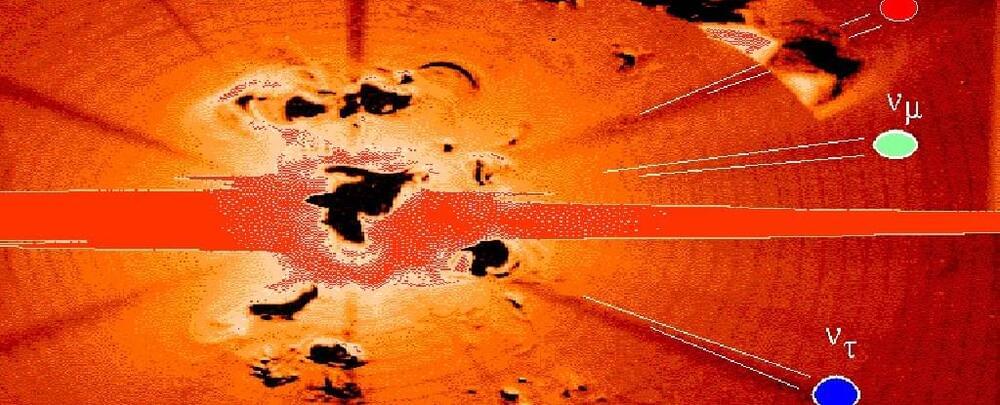Mar 30, 2023
Scientists spot a black hole 33 billion times bigger than the sun
Posted by Paul Battista in categories: cosmology, futurism
The ‘ultramassive’ black hole discovery has big implications for our future understanding of space.
The ‘ultramassive’ black hole discovery has big implications for our future understanding of space.

Echopraxia is a book set in one of the most interesting sci-fi universes that I have covered on this channel. It is technically a sequel to Blindsight, but it is not necessary that you read Blindsight to understand Echopraxia is set in the late 21 century. About 14 years after man’s first contact with alien life.
This book brings up one of the most interesting concepts I’ve ever encountered in any sci-fi book ever. And that is the concept of the “Digital Universe” and God as a Virus. Now this is a concept that comes from the field of digital physics, which keep in mind is all theoretical. It is based on the premise that the universe is pure mathematics at its base, every event that occurs can be thought of as a kind of computation. This could mean that the universe is a simulation, but that is not necessary for the idea to work.
Cambridge researchers have discovered a new topological phase in a two-dimensional system, which could be used as a new platform for exploring topological physics in nanoscale devices.
Two-dimensional materials such as graphene have served as a playground for the experimental discovery and theoretical understanding of a wide range of phenomena in physics and materials science. Beyond graphene, there are a large number 2D materials, all with different physical properties. This is promising for potential applications in nanotechnology, where a wide range of functionality can be achieved in devices by using different 2D materials or stacking combinations of different layers.
It was recently discovered that in materials such as hexagonal boron nitride (hBN), which are less symmetric than graphene, ferroelectricity occurs when one layer slides over the other and breaks a symmetry. Ferroelectricity is the switching of a material’s electric dipole moment with an electric field, which is a useful property for information processing and memory storage.

The Big Bang may have not been alone. The appearance of all the particles and radiation in the universe may have been joined by another Big Bang that flooded our universe with dark matter particles. And we may be able to detect it.
In the standard cosmological picture the early universe was a very exotic place. Perhaps the most momentous thing to happen in our cosmos was the event of inflation, which at very early times after the Big Bang sent our universe into a period of extremely rapid expansion.
Continue reading “What if The Universe Started With a Dark Big Bang?” »
CRISPR Is The Future.
Welcome to the future!
It is the year 2050, and the world is facing a crisis. Climate change has caused widespread devastation, and the planet’s resources are dwindling. Famine and disease are rampant, and humanity is on the brink of collapse. But amidst the chaos, a new hope emerges.
Scientists have devised a way of fabricating a complex structure, previously found only in nature, to open up new ways for manipulating and controlling light.
The structure, which naturally occurs in the wing scales of some species of butterfly, can function as a photonic crystal, according to a new study by researchers at the University of Birmingham. It can be used to control light in the visible range of the spectrum, for applications for lasers, sensors, and also devices for harvesting solar energy.
Their computational study, published in Advanced Materials, demonstrates that the complex gyroid structure can be self-assembled from designer colloidal particles in the range of hundreds of nanometers.
The first possible scenarios for life’s origin is that life may simply have been a miracle. It may have been a divine act of intervention. If so, then the origin of life is not a scientific question. There is no experiment one can propose or an observation one can make.
Yet, it’s equally possible that the origin of life was an event that’s fully consistent with the known laws of physics and chemistry, but an extremely improbable, perhaps unique event; perhaps an event that only took place on Earth. Once again, it’s really not amenable to scientific study, because we can’t go into the laboratory and study a unique event.
And then there is a third possibility, and that’s that life is an inevitable consequence of chemistry. That, given an appropriate environment—an appropriate planet with water, for example—and sufficient time, that life always arises.
To be honest, the chances of anything becoming a fossil are slim. The fact that we have fossils at all speaks to the sheer numbers of individuals and species that have existed through time. With their countless billions, it would only take a tiny fraction of them to fossilize and to leave us with a substantial record in the rocks.
But let’s consider those that do make it. What factors do they have in their favor? How do you maximize your chance of becoming a fossil? As a real estate agent would say: location, location, location. Just as being in the right place might maximize your chances of making a killing on the housing market, so being in the right place increases your chance of becoming a fossil.
To form a fossil, you need to get your body buried as quickly as possible, out of the way of the scavengers and preferably sealed from oxygen, or in at least reduced oxygen conditions. This just isn’t going to happen on an open plain, but if the subject in question happened to live close to a body of water—a river or a lake—you now have a chance to being in an environment where you might be able to bury your corpse with sediment.
Humans have a different kind of intelligence that has evolved only once throughout the whole history of life. Thus, we wrongly believe that humans are the most evolved species, and other creatures are at lower levels of evolution. The reality is that under any conditions, only the fittest survive. The definition of ‘fittest’ differs in each environment and condition, and so do the means for the survival of the fittest.
Learn more about what banged, and was it big?
